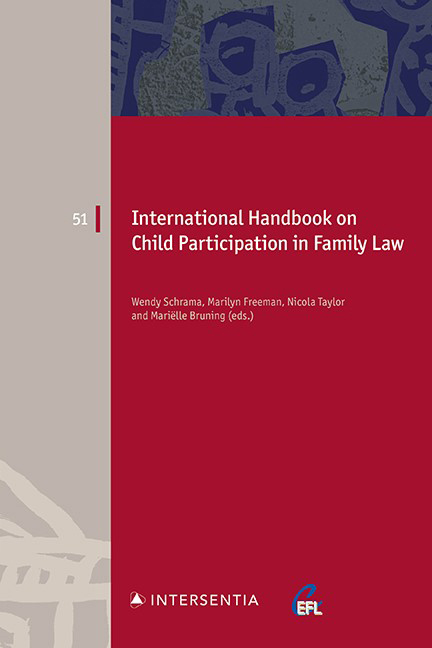Book contents
Romania
Published online by Cambridge University Press: 10 December 2021
Summary
INTRODUCTION
Romania emerged as a democracy in the early 1990s after the fall of the Communist dictatorship which lasted for more than half a century and which has been considered of a more ruthless type than elsewhere in Eastern Europe, with the exception of the Soviet Union. The ensuing democratisation process included the rapid accession to most international (human rights) conventions and the enactment of new laws so as to reflect the new neoliberal ambitions.
The modernisation of the laws was not followed by a similarly fast-paced change in mentalities. Allegations of corruption of public officials continue to be rampant, leaving Romanian institutions to function in an unhealthy judicial culture, plagued by attitudes of distrust both from within the judiciary and from the population in general.
The family law system, albeit seemingly detached from the political scene, operates against a background of conservative and patriarchal attitudes. For example, the concept of family is narrowly linked to the marriage between a man and a woman, with no meaningful discussion on changing laws so as to allow same-sex unions. Women remain the main caretakers of children and Romania has been recently condemned for not providing appropriate protection to victims of domestic violence. At the same time, family judges are increasingly exposed to cross-border disputes due to massive emigration.
The Romanian legal system follows a civil law tradition inspired by its French counterpart. The 1991 Constitution is the supreme law of the land. The Constitution establishes the High Court of Cassation and Justice (Inalta Curte de Casatie si Justitie) (the Supreme Court) as the highest court of the land, which among other things is responsible for overseeing the unitary application of law by other courts of justice. Few family disputes would be in practice decided by the Supreme Court; jurisdiction for private family cases has been allocated to the courts of first instance (judec a torii) whose judgments are subject to appeal to the district courts. In 2017 there were 177 courts of first instance and 42 district courts across the country, leaving a lot of room for diverging practices in approaches to child participation.
The Constitutional Court was also established under the Constitution. This Court reviews the conformity of legislation with the Constitution, both prior to and post-enactment, through the possibility for citizens to bring constitutional challenges against laws in the context of pending litigation.
- Type
- Chapter
- Information
- International Handbook on Child Participation in Family Law , pp. 273 - 286Publisher: IntersentiaPrint publication year: 2021

